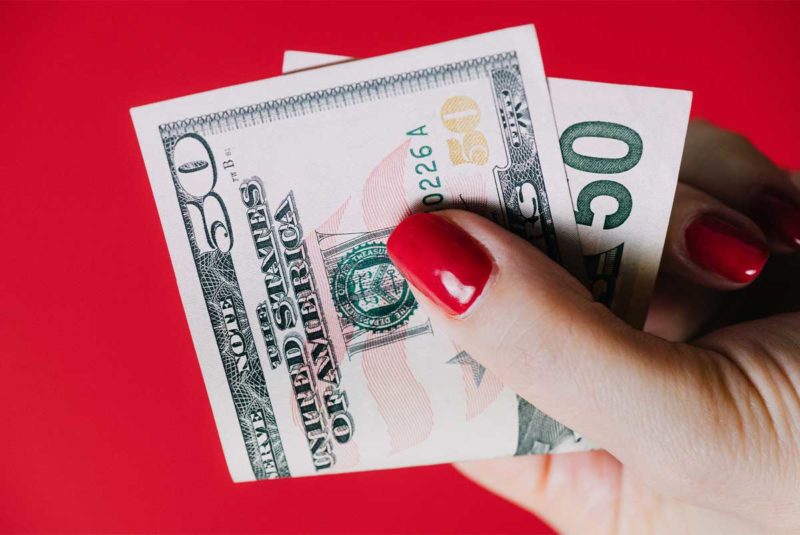Ready To Buy a Home?
Get Approved to Buy a Home
Rocket Mortgage® lets you get to house hunting sooner.
As you dip into the home buying waters, you may hear the term “escrow” being thrown around. Escrow accounts are common in real estate transactions and exist to protect both buyers and sellers.
We’ll explain what escrow is, how it works and everything else you need to know about it when purchasing a home.
What Does Escrow Mean?
Explore Your Mortgage Options
What are you looking to do?
Escrow is a third-party legal arrangement that temporarily holds money during the home buying process and releases it when a particular set of conditions have been met.
Let’s say you make a friendly wager. You may ask a neutral friend who’s not involved in the wager to hold onto the money for you. Escrow is the legal version of that neutral friend.
What is an escrow account?
An escrow account is essentially a savings account that’s managed by a bank or title company. The account is used to set money aside, ensuring the soon-to-be homeowner can meet their financial obligations.
Returning to the metaphor of the neutral friend, the escrow account is the mechanism that allows them to hold the money as the neutral party.
How Does Escrow Work?
There are two types of escrow accounts: those set up to facilitate a home purchase and those set up to deal with property taxes and insurance afterward. Both types are important for new home buyers to understand.
1. Escrow accounts for home purchase
When you make an offer on a home, that offer will include earnest money – also referred to as a good faith deposit. If a seller accepts your offer, that money gets transferred to an escrow account to show the seller that you’re committed to buying the home.
In return, they refuse to accept other offers and take their house off the market while the closing process runs its course. This includes steps like getting a home inspection and home appraisal.
The escrow account protects both the buyer and the seller. If the deal goes through, the earnest money in escrow will be applied to the deal, either toward the down payment or closing costs.
If there’s an issue with a contingency – for example, if large problems come back with the home inspection – the earnest money may be returned to the buyer depending on the specifics of the purchase agreement.
2. Escrow accounts for property taxes and insurance
After you close on your home, your lender or loan servicer will set up a new escrow account for your property taxes and insurance. This type of escrow account is used to collect and manage the funds needed to meet specific obligations throughout the life of your mortgage. An escrow account covers:
- Estimated property taxes
- Insurance premiums, including homeowners insurance and mortgage insurance
Tax bills and insurance premiums can change year to year. Your mortgage lender will calculate what you owe in escrow each year, and it’s possible your payments may increase based on your homeowners insurance or local tax adjustments. You may also have to pay out of pocket if there’s a shortage.
However, it’s also possible for your payments to decrease, and you might even qualify for an escrow refund if they fall far enough.
Who Manages the Escrow Account?
During the home buying process, your real estate agent – or the seller’s real estate agent – will set up an escrow account through a title company, bank or credit union.
Once you’ve closed on your new home and start making mortgage payments, your mortgage lender – or loan servicing company – is responsible for setting up an escrow account to handle your taxes and insurance.
When you get your mortgage statement, you’ll see that your payment goes toward the principal balance, interest and escrow. The lender or servicer deposits the escrow funds into your escrow account and, when your property taxes or insurance payments are due, the lender withdraws money from that account to make payments.
The Pros and Cons of Using Mortgage Escrow Accounts
Using a mortgage escrow account to buy a home is standard operating procedure. But when it comes to using a mortgage escrow account to cover property taxes and insurance, you may be able to opt out. However, you’ll need to qualify for an escrow waiver.
Opting out of using an escrow account can lower your monthly mortgage payment since it won’t be part of your monthly mortgage payment anymore., it’s important to remember, you’ll still have the expense – and the responsibility – of paying for property taxes and homeowners insurance yourself.
PROS of using mortgage escrow accounts👍
If you decide to go with a mortgage escrow account, your lender may offer a discount on your interest rate or closing costs, though this will depend on the lender you choose. Remember, these are typically required by lenders.
With a mortgage escrow account, you won’t be left wondering how much you need to set aside to cover your property taxes. By using an escrow and letting the lender manage payments, you can save yourself the stress of missing payments or being short on funds.
CONS of using mortgage escrow accounts👎
When you set up a mortgage escrow account, you might pay upfront to cover several months of property taxes. That can add to your closing costs when you buy your home.
Many mortgage servicers charge a waiver fee for opting out of escrow payments. Check to see if that’s the case before deciding to make payments on your own.
Opting Out of Escrow
Most homeowners find escrow accounts convenient. They can help make your monthly payments more manageable. They also consolidate payments for the buyer, as your lender takes care of paying property taxes from the escrow account.
But if you’d prefer to avoid an escrow payment, there are circumstances where you can choose to opt out. Again, you might see your monthly mortgage payment go down if you opt out, but you’ll still have to pay for property taxes and homeowners insurance – and make those payments yourself.
Also, some mortgage servicers charge a premium for opting out of escrow payments. So check before deciding to make the payments on your own.
Escrow FAQs
Depending on the purpose of the account, you can get escrow money back for a variety of reasons.
- For home purchase escrow accounts, you may get the funds back if the sale doesn’t go through, and it’s not the buyer’s fault – for example, if the seller decides to pull out or if there are major issues with the home inspection.
- For escrow accounts set up for property taxes and mortgage insurance, you may receive a refund if there’s a surplus in the account or if you pay off the mortgage and unused funds are still in the account.
If you elect to use an escrow account to manage your property tax and insurance payments, you’ll pay escrow on your mortgage for the life of the loan.
In order to purchase a home, you’ll need to transfer funds – like your earnest money deposit – into an escrow account. But an escrow account may not be required to manage your property taxes and mortgage insurance. Its best to talk to your lender about your options.
Final Thoughts on Escrow
Escrow is often a major part of the home buying process. While it may seem complicated, it can make your life easier by helping ensure you can meet all the financial obligations of your mortgage over the life of your loan.
Get approved to buy a home.
Rocket Mortgage® lets you get to house hunting sooner.
The Short Version
- Escrow is a third-party legal arrangement that temporarily holds money during the home buying process and releases it when a particular set of conditions have been met
- You can use an escrow account to manage funds before you close on your home and to pay for taxes and insurance afterward.
- Lenders typically require borrowers to have an escrow account to manage property taxes and mortgage insurance. However, it may be possible to get a loan without one and, to do that, you’ll need to qualify for an escrow waiver.




